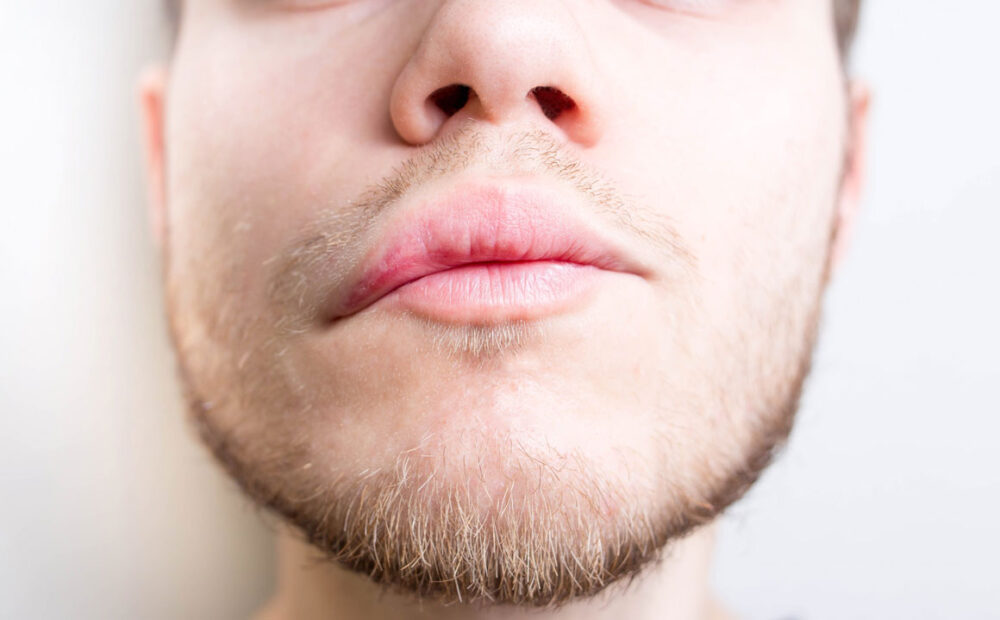Advertisment
Gene editing therapy shows promise for hereditary angioedema

One treatment with a CRISPR-Cas9 based gene editing therapy, NTLA-2002, could replace daily medication of many patients with hereditary angioedema (HAE), a painful condition with severe onset of swelling.
Researchers reported their findings from the phase 2 study on Oct 24, 2024 at American College of Allergy, Asthma & Immunology’s annual congress, and they were published simultaneously in the New England Journal of Medicine.
“The results of this double-blind, placebo-controlled portion of the study confirm our promising findings from the phase 1 study, showing dramatic reductions of angioedema swellings following a single-dose treatment with this gene editing based therapy,” said lead author Danny Cohn, M.D., internist at Amsterdam UMC/University Medical Center. “For many decades, patients with HAE were faced with a very limited number of treatment options to control angioedema attacks. The prospect of a potential, functional cure following a single-time treatment is overwhelming both for patients and physicians,” Cohn added.
The phase 2 study is an enlargement on a phase 1 study which included 10 subjects. Using CRISPR-based therapy on 27 patients, they noted the effects of two different dosages compared to placebo. They also noted that a single dose of NTLA-2002 may provide lifelong control of angioedema attacks.
NTLA-2002 targets the gene encoding kallikrein B1 (KLKB1).
They reported that both dosages of treatment reduced angioedema attacks and led to a reduction in kallikrein levels in HAE patients.
“This reduction [of kallikrein] is perhaps the most crucial as it shows us that the therapy is working. Kallikrein acts as messenger that triggers swelling and in patients with HAE, this protein is basically let loose. The fact that we can reduce its presence tells us that we’re on the right track,” said Dr Hilary Longhurst, immunologist and honorary senior lecturer at the University of Auckland in New Zealand.
In this phase 2 part of a phase 1–2 trial, the investigators randomized 27 adults with hereditary angioedema in a 2:2:1 ratio to receive NTLA-2002 in a single dose of 25 mg or 50 mg or placebo.
The primary end point was the number of angioedema attacks per month (the monthly attack rate) from week 1 through week 16.
Of the 27 subjects, 10 received 25 mg of NTLA-2002, 11 received 50 mg, and 6 received placebo.
From week 1 through week 16, the estimated mean monthly attack rate was 0.70 with 25 mg of NTLA-2002, 0.65 with 50 mg and 2.82 with placebo.
The difference in the estimated mean attack rate with NTLA-2002 compared to placebo was −75% with 25 mg, and −77% with 50 mg.
Among subjects treated with NTLA-2002, 4 of the 10 patients who received 25 mg (40%) and 8 of the 11 who received 50 mg (73%) were attack-free and had no additional treatment from weeks 1 through week 16.
The mean percent change in kallikrein protein levels from baseline to week 16 was −55% with 25 mg and −86% with 50 mg. The level remained unchanged with placebo.
The authors summarized the findings: “In this placebo-controlled trial of a systemically delivered, in vivo CRISPR-Cas9–based therapy, the frequency of angioedema attacks was lower among patients who received a one-time infusion of NTLA-2002 at a dose of 25 mg or 50 mg than among those who received placebo. Of 11 patients who received 50 mg of NTLA-2002, 8 were attack-free during the period from week 1 through week 16, a result that is consistent with the greater and more stable reductions achieved in total plasma kallikrein protein levels with 50 mg than with 25 mg. Among the 10 patients who received 25 mg, only 4 were attack-free.”
They added, “These results support continued investigation in a larger phase 3 trial.”





